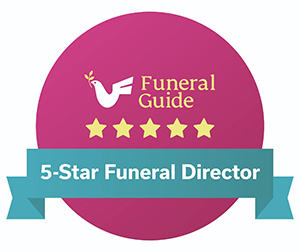If you’re an executor of a will you may find yourself in the delicate situation of having to make decisions based on vague or limited information when it comes to funeral arrangements. Decisions around what should happen with the ashes can get overlooked. So who legally owns the ashes?
You might find a loved one has left detailed instructions about what happens following their death, or they may have left none. A loved one may decide that they want to be cremated but haven’t left any instructions as to their wishes for the ashes.
As an executor, by law, you are given responsibility to make the funeral arrangements, (that is arranging a burial or cremation) and for the ashes.
If a person dies without leaving a will or an executor is not named, the responsibility falls on the highest-ranking next of kin (based on a hierarchy set out in law).
The situation can become challenging if other family members don’t agree on what should happen to the ashes and a loved one hasn’t left any specific instructions as to what should happen following a cremation.
If a couple weren’t married the surviving partner has no automatic legal right to decide on funeral arrangements, unless they are named as an executor.
Does Making a Will Help?
Leaving a set of instructions can help avoid family disputes over the ashes and how they should be memorialised. However, it’s worth understanding that funeral wishes made in a will are not generally legally binding.
In one legal dispute The European Convention on Human Rights (ECHR) was used to argue that a deceased person’s wishes are legally binding on the estate administrator (the judge used Article 8 that says the state should not interfere in private or family matters unless a very certain set of circumstances are met).
However, in another case the judge decided that a person who was deceased could not have human rights and therefore the ECHR could not apply. Article 9 of the ECHR also refers to the freedom of conscience, thought and religion (where a person has the right not to be forced into practises they don’t want because of religious beliefs).
The takeaway here is that when disputes arise court decisions are inconsistent. And it’s unlikely a court will (or has not yet) split the ashes to accommodate disputing families.
Who Legally Owns the Ashes? The Order of Priority
You should always try to avoid a legal dispute. Leaving clear guidance of your funeral, a funeral plan can help with this, and what should be done after can help avoid family disputes at an already emotional time.
It’s also worth considering the following points:
- A body is not property and cannot be owned
- The person entitled to ‘possess’ the body for the purposes of making arrangements is the person who has a duty under law (this means the executor or administrator as set out in law). Possession in the legal sense begins at the time of death.
- The Crematorium Authority can only hand over the ashes to the person nominated in the ‘Application for Cremation’. Crematorium paperwork includes questions designed to prevent the cremation without the knowledge of close family members or any of the executors.
Having physical possession of the ashes as the applicant for cremation is not the same as having the legal responsibility for the disposal. This remains with the executor or estate administrator.
But even then, the rights to possession of the body aren’t necessarily in the hands of the executor or estate administrator immediately:
- A hospital has the right to keep the deceased if it is considered infectious, or if a person has died from a notifiable disease.
- The coroner has the right to be first to take temporary possession of a deceased in order to determine the cause of death. Once an examination has been completed the body will be released.
- Then, if the deceased left a will, a named executor has the right to possession.
- If there is no will the highest ranked family member has the right to possession.
In the case of intestacy, the hierarchy of responsibility is as follows:
- the surviving spouse or civil partner
- the deceased’s children,
- the deceased’s parents
- the deceased’s siblings
A cohabiting partner or children of a cohabiting partner are excluded. If you have been living with your partner but are not married, you have no legal right to make the funeral arrangements.
When a court becomes involved (for example where two equally ranked family members can’t agree) it will look at the facts and the circumstances and will make a decision that may not follow the intestacy hierarchy above.
The Court will look at the reasonable requirements and wishes of close family members as well as location with which the deceased had the closest connection. The court’s primary position is to allow the deceased to rest as quickly as possible and with dignity.
Who Legally Owns the Ashes? Crematoria Rules
When you apply for a cremation you will be asked about your requirements for the ashes. Some crematoria have places where ashes can be laid to rest, but you don’t have to decide at that point. As part of the application you can request the crematorium hold on to the ashes.
If you opt for this, you will be asked for a decision date and there may be a charge for holding the ashes over a period of time.
If you give no instructions regarding the ashes, or do not collect them as agreed, then the cremation authority becomes responsible for interring or scattering the ashes.
If this happens the crematorium must make reasonable attempts to get in touch with you, giving you 14 days’ notice of their plans. If this happens you can make alternative arrangements, but the crematorium must receive written instructions before the 14-day notice period comes to an end.
Final Thoughts
Families fighting over funeral arrangements is not unheard of and according to The Gazette as many as a quarter of deaths result in a family disagreement.
An executor or the estate’s administrator might have to deal with emotional family members and the added dimensions of second or blended families increase the potential for conflict. Even if they agree with cremation the fate of the ashes can become a point of conflict.
And as with any dispute it’s always worth making attempts to discuss things before taking court action. Solving disputes through the courts is not only costly but can seriously delay the memorialising of your loved one.







